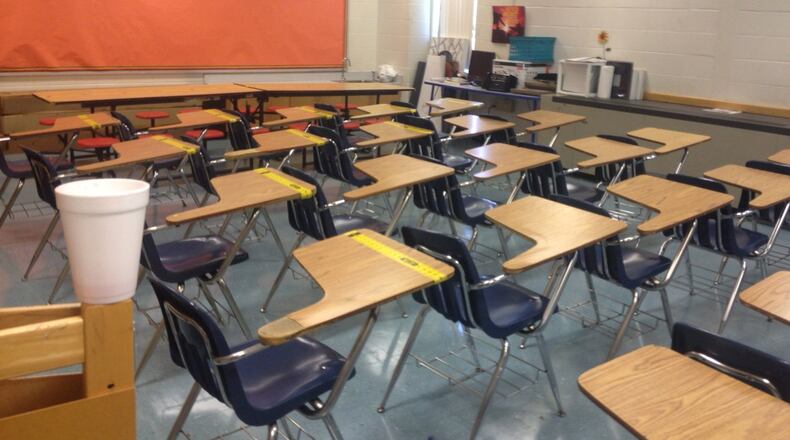A statewide program that allows taxpayers to contribute to a private school scholarship fund seems to be declining in popularity amid changes to federal tax rules.
The contributions, which are fully refunded by an equal reduction of donors’ state taxes, are passed on to private schools that use the money for tuition subsidies. Proponents of the program say it gives cash-strapped families an alternative to public schools that are failing their children, but critics say it helps a chosen few, including the rich, attend private schools, leaving less money for public schools. They also note that wealthier donors have been profiting from the donations through a federal loophole now at risk of closing.
The program has been so popular with donors that the $58 million statewide donation cap was routinely reached in one day when the contribution window opened each January. Since at least 2016, donors contributed over $100 million each year, forcing the state to cut each donor’s amount in half. Last year, $105 million came in on day one, according to Georgia GOAL, the largest of the nonprofit pass-through organizations. (Individual donors can give up to $1,000; married couples filing jointly can give up to $2,500. The limit for business owners is $10,000, and corporations can give up to three quarters of their income tax liability.) Backers pointed to that as evidence of strong public support, prompting the General Assembly to raise the cap to $100 million for this year despite opposition from teachers and other public school advocates.
But for the first time in several years, donors aren’t pouring into the program. As of Tuesday, just over two months after the window opened, the new cap remained unmet, a spokesman for the Georgia Department of Revenue said. With the program’s cap being reached so quickly in previous years, the department hasn’t yet developed a tracking and reporting system and could not report how much had been contributed this year, he said.
>> RELATED: Georgia Senate says "no" to new private school funding bill
One likely reason for the slow contributions, tax advisers and others say, are actual and proposed changes to federal rules. Under old tax rules, wealthier donors could claim their fully refunded donation as a “charitable contribution” for a deduction on their federal income taxes. But last summer, as more states sought to exploit the loophole, the IRS and U.S. Treasury Department proposed to close it by eliminating or limiting the federal tax break donors get for giving to state programs like this scholarship fund.
“It was certainly a more attractive tax strategy before the proposed federal regulation,” said Annika Cushnie, a partner with Brightworth, a wealth management firm in Atlanta’s Buckhead area. If the proposed rule takes effect, it would be retroactive to last summer.
Some point to the diminished interest as evidence that the popularity among taxpayers was based more on a self-interested financial calculation than on subsidizing parents such as Amanda Relaford-Hollingsworth, who sends three children to a southeast Atlanta private school with scholarships from the tax credits.
“If it was full-on tuition,” she said, “I don’t think it would be possible.”
But proponents such as Indianapolis-based EdChoice, which advocates for public support of alternatives to public schools, say the diminished interest among taxpayers is simply the result of confusion about the federal tax changes. Leslie Hiner, vice president of legal affairs for the group, said regular taxpayers who don’t stand to profit but support the idea of public financing of private schools have been scared away by fears that they’ll lose money. “Leave it to Treasury to complicate our lives,” she said.
If contributions are falling, there might be less money for scholarships to help parents like Relaford-Hollingsworth. She drives her kids half an hour from home to Atlanta Youth Academy, which offers “excellent academics and active pursuit of God’s word,” according to its website. Her neighborhood public school has low test scores, more children per teacher and, she assumes, more problems with disruptive students. Her oldest, Merce, 14, has excelled academically at the private school and is already talking about becoming an architect.
But even if Georgia's program becomes less popular, parents like her may find help on the federal level. Last week, Education Secretary Betsy DeVos and Republican lawmakers announced a proposal to establish a multibillion-dollar federal tax credit scholarship program.
About the Author
Keep Reading
The Latest
Featured


